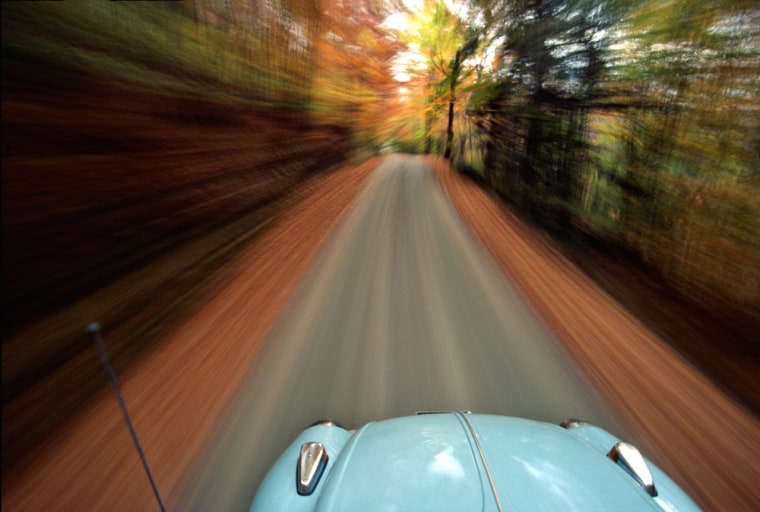For many people, a road trip is a group adventure — a family expedition or a bunch of friends hitting the highway for a holiday. For others, the appeal of the open road is that it offers solitude, a time to think without having to accommodate anyone else. If you're one of these just-me-and-my-car types, there's no better time than summer to hit the road.
A solo road trip gives the traveler absolute power, the opportunity to control every aspect of the trip. Of course, one choice is to control nothing at all, to simply let the direction and events of a day dictate where the traveler goes and what happens as a result. Whatever the traveler's style, there's only one person to please — and one person to take the blame when things go wrong. For some, this is daunting. For others, it's road-trip nirvana.
Popular literature usually portrays , but the majority of solo rollers I know are women. I have been responding to requests for travel advice through my Web site, , for 11 years, and in my experience, far greater numbers of women, both young and old, hit the road solo. It's an equal-opportunity adventure.
There are some obvious advantages to road tripping alone:
1. There won't be any arguments about which shock-jock radio station to listen to or what kind of music to play.
2. You can sleep in or you can get up before dawn — and you don't have to wait for the shower.
3. You can get to know other travelers whom you might not even notice if you were traveling with others.
4. You can "think out loud" and say things that you would never say in the company of any other living person. In fact, you can do just about anything you want in the confines of your vehicle (hopefully in a safe and sane manner).
5. You can choose the level of planning and routing for your road trip. I frequently advise first-time solo adventurers to choose a route without plotting a strict itinerary. Even if the end date is fixed, a solo road tripper can enjoy the luxury of changing plans along the way.
6. You get to be a "renegade" if you want to be. As a travel columnist, I make my living providing clear, concise and (hopefully) good advice, but when I am on a solo road trip, I frequently break one or more of the "rules," usually the one about telling someone where I am planning to go. I trust that my expertise and the hundreds of thousands of successfully completed road-trip miles will contribute to a satisfactory completion of my adventure. My point is, when you're on a solo trip, you get to make up most of the rules. Embrace your inner renegade — it's good for the soul!
I took my first solo road trip the year after I graduated from high school. I drove 10,578 miles in about three weeks, zigzagging my way from southern California to southern Florida and back. In the intervening years, I've made well over a hundred solo runs. Here are a few things I've learned and would recommend you consider on your next solo adventure:
- Determine your personal and plan your trip accordingly.
- Keep a journal — a simple notebook works well — and jot down your thoughts at least once a day. Carry a camera and use it frequently.
- Carry items to give as friendly gifts to people who are helpful to you on your journey. I carry small souvenir pins, but the possibilities are endless.
- Establish a check-in time with your friends or family. Some travelers do this twice a day; I tend to do it once a day.
- Place an itinerary in your vehicle's glove box, along with a list of contact numbers, in case your car is found by law enforcement (and you are not in it). Ensure that someone knows where you expect to drive each day of your trip.
- Put an in your cell-phone address book with contact information and notes, in case you are unable to speak following an accident or other road incident.
- Plan your , create a "," and have a . Carry your own personal pillow with you and know how to complete a safe and sane if you need to.
- Carry an extra set of keys to your vehicle and a complete set of medical and legal records, including a passport or some other legal identification.
- Consider engaging the services of an automotive service response company like AAA or Allstate Motor Club. Many of these organizations support .
- Carry a citizens band radio and/or listen to National Oceanic & Atmospheric Administration weather alert stations.
- Local newspapers are good sources for information about the towns you will be traveling through, but the best way to scout out little-known roadside gems is to get a haircut or get your nails done in a small town and speak to the locals about their own favorite hangouts.
Best advice: Be open to whatever the road brings you; be aware of your surroundings; and get on out there. If you can stand your own company, a remarkable adventure is waiting for you.
